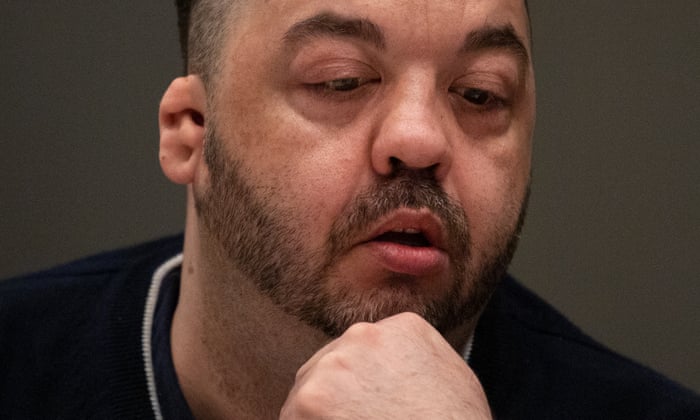"Resuscitation Rambo"
"Early warning signs and evidence that something was up were not registered [or were] ignored or even hushed up."
"Hospitals prioritized their own interests over the interests of their patients."
Karl Beine, head physician, St.Marien Hospital Hamm, Oldenburg, Germany
"It was the clinical daily routine which failed to challenge me."
"I would like to sincerely apologize to every single individual for all that I have subjected them to over the years."
Niels Hoegel, German nurse
"Your guilt is so large that one can't explain it. It is so large, you can't show it."
"These people were pawns in a game for you -- a game that only you could win and all the others could only lose."
"The human ability to understand capitulates when faced with the sheer number of deaths, week for week, month for month, year for year."
"Despite all of our attempts, we could only lift part of the fog that hangs over this trial. That fills us with a certain sadness."
Judge Sebastian Buehrmann, presiding judge, court, northwestern Germany
"Neither we nor Mr. Hoegel deny that he is the perpetrator in many cases."
"But he can only be convicted for crimes he committed and not for crimes he could have committed."
Ulrike Baumann, defence attorney
 |
The 42-year-old former German hospital nurse was accused of causing one hundred patient deaths from the year 2000 to 2005, working at a clinic and following that a hospital in northern Germany.
He was in fact convicted on Thursday of 85 counts of murder, and sentenced to life in prison as a result of the "seriousness of the crimes". The man admitted to 55 of those killings.
He was bored with his duties as a nurse. And so, he began a kind of game that only he knew was being played out. Administering drugs to patients that would create arrhythmias, would drive their blood pressure to dangerously low levels, and in the process induce cardiac arrest. That's not where it ended. He would then react expeditiously and with intent to resuscitate the patient, and sometimes he was successful.
Those successes gained him the admiration of his nursing peers. That little game where some lived and others died continued for years. Until one day in 2005 he was caught in the act of administering ajmaline, a drug meant for use in inducing arrhythmic contractions when testing for a heart-rhythm disorder. A few days later, that patient died. Despite which the hospital failed to alert authorities and Hoegel was enabled to continue his killing spree.
It was pointed out that flaws in the hospital security system and their reporting protocols were responsible in allowing a serial killer to wear a hospital uniform while going room to room, unnoticed as he ended peoples' lives. Originally, Hoegel was convicted of attempted murder in 2008, sentenced to over seven years in prison. In 2015, a judge sentenced him to life in prison for two murders and two attempted murders.
Konstantin Karyofilis, a court-appointed psychiatrist, stated that Hoegel was mentally fit. His goal had been to elicit respect from his colleagues; recognition from patients and their families. As time went on, Hoegel began to view the patients' lives as his playground. Cases kept being identified with prosecutors calling for another trial. In his third trial he was accused in 100 additional deaths while he worked at a clinic in Oldenburg from 1999 to 2002, later at a hospital in Delmenhorst from 2003 to 2005.
According to Hoegel's defence team, their client needed to be acquitted in 31 of the cases. He admitted to 44 murders only, and 14 attempted murders. In total, he is thought to have been responsible for up to 300 murders. In the interim between his actions and the trials and convictions evidence was lost and peoples' memories were fogged, complicating the trial process. What is not in question is that this man is the worst such serial killer ever on record.
 |
Labels: Germany, Mass Murder, Nurse

<< Home